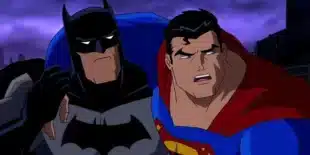The iconic Mickey Mouse, in his original form, is poised to become public domain as we usher in the year 2024, marking a significant milestone in the world of intellectual property. This development is particularly symbolic, given Mickey Mouse’s status as a cornerstone of American pop culture and one of Disney’s most prized assets.
The impending public domain status of Mickey Mouse, specifically from his first on-screen appearance in the 1928 short “Steamboat Willie,” has been a long-awaited event for many observers. This shift is in line with U.S. copyright law, which allows a copyright to last for 95 years, having been extended several times during Mickey’s existence.
Jennifer Jenkins, a law professor at Duke University and an expert on public domain issues, expressed excitement over this development. The change is often referred to as the “Mickey Mouse Protection Act,” a term that simplifies the broader push for copyright term extension by various copyright holders.
Disney has clarified that while the copyright for the “Steamboat Willie” film will expire, this does not alter the company’s association with Mickey Mouse. Modern versions of Mickey, as well as other Disney works, will continue to be under copyright protection. The public will have access only to the early version of Mickey featured in “Steamboat Willie,” who was more mischievous and rat-like.
Disney also holds a separate trademark on Mickey as a corporate mascot, preventing deceptive uses that could mislead consumers. This means that new businesses cannot use Mickey Mouse or similar imagery to imply an association with Disney.
“Steamboat Willie,” one of the first cartoons with synchronized sound, was directed by Walt Disney and Ub Iwerks. It features Mickey making music with other animals aboard a boat.
In addition to Mickey Mouse, other notable works entering the public domain include Tigger from “The House at Pooh Corner,” Charlie Chaplin’s film “Circus,” Virginia Woolf’s novel “Orlando,” and Eugene O’Neill’s play “Long Day’s Journey into Night.”
The current U.S. copyright term, aligned with the European Union since 1998, is unlikely to be extended further. Some powerful companies, like Amazon and Google, now advocate for the public domain, contrasting the situation two decades ago.
Paul Heald, a copyright law expert, highlights the disparity in international copyright terms. Works like George Orwell’s “Animal Farm” and “1984” are already public domain in the UK but will remain copyrighted in the U.S. for another 25 years. He suggests that adopting a rule for a shorter term could bring many works into the public domain in the U.S. significantly sooner.


